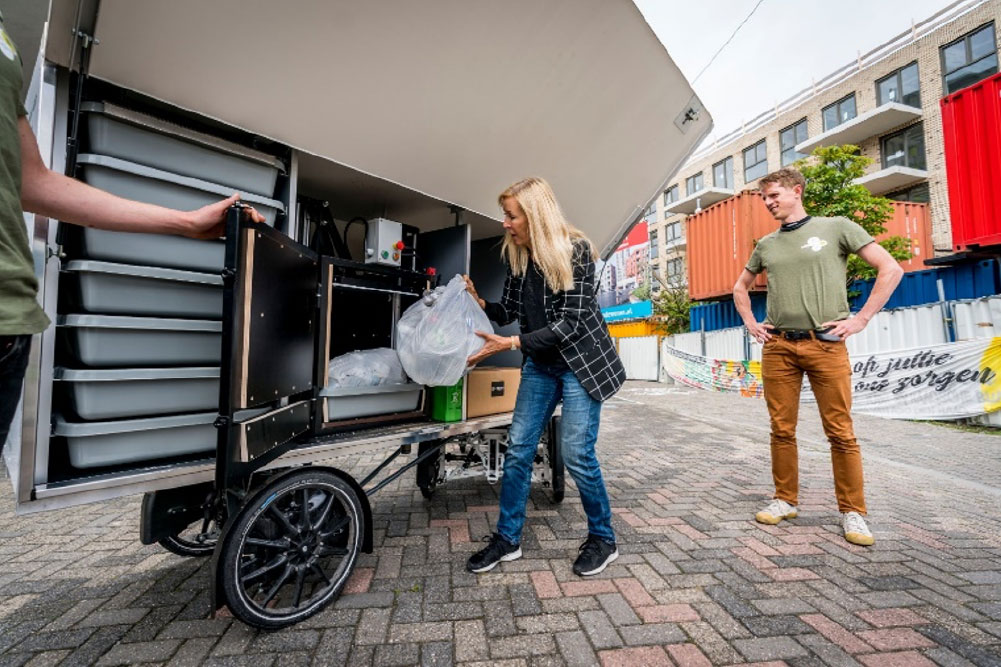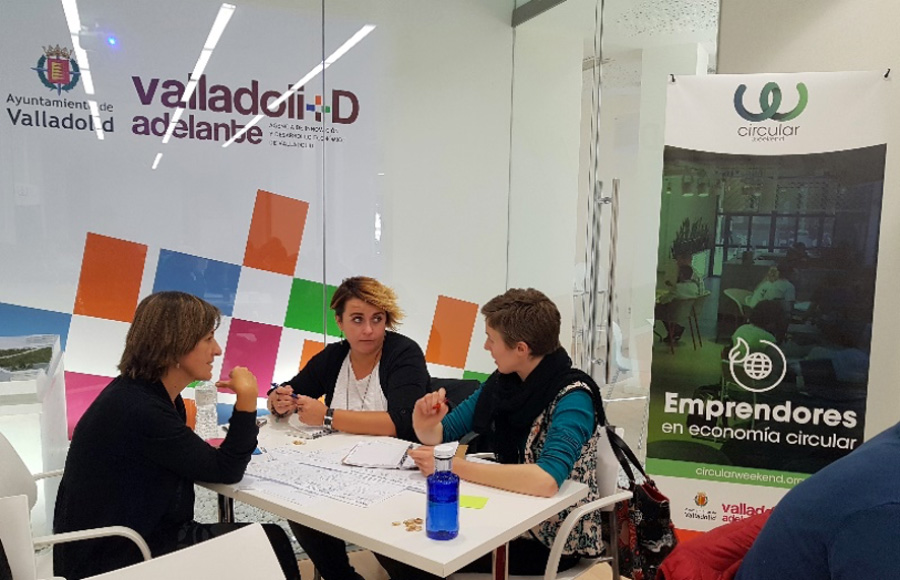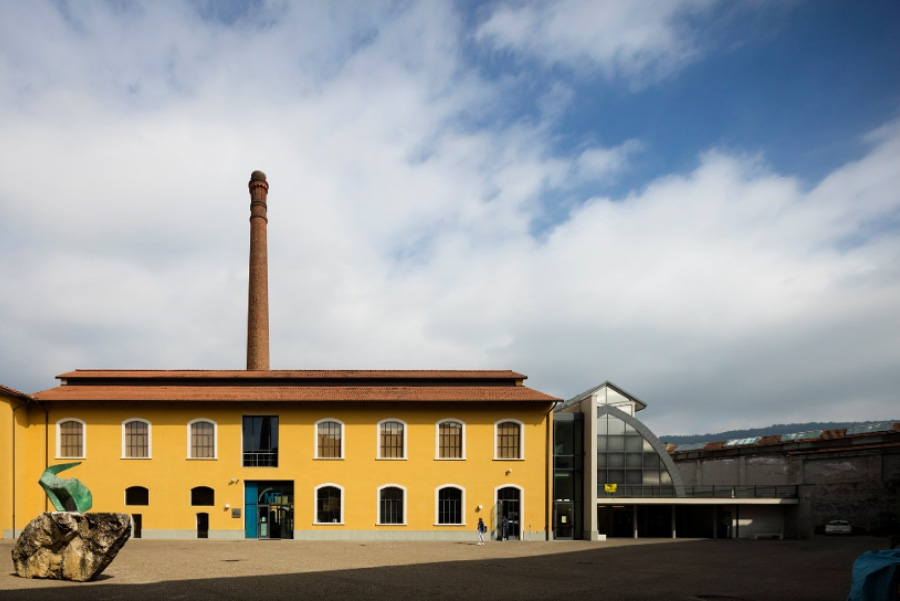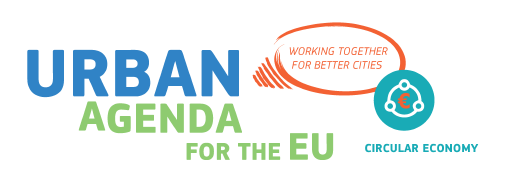To find out more about the circular economy in cities and how best to start the circular transition, the following initiatives and resources can be helpful.
- Circular City Centre (C3)
 : The C3 is a competence and resource centre within the European Investment Bank, established with the support of the European Commission through the European Investment Advisory Hub. The C3 supports EU cities in their circular economy transition by sharing resources and practical information, providing circular city advisory, and raising awareness about relevant advisory and funding opportunities for circular projects. The C3 can help cities take circular action, thereby addressing many of the linear problems they struggle with today, and make their cities more regenerative, resilient, clean, liveable and attractive to both citizens and companies.
: The C3 is a competence and resource centre within the European Investment Bank, established with the support of the European Commission through the European Investment Advisory Hub. The C3 supports EU cities in their circular economy transition by sharing resources and practical information, providing circular city advisory, and raising awareness about relevant advisory and funding opportunities for circular projects. The C3 can help cities take circular action, thereby addressing many of the linear problems they struggle with today, and make their cities more regenerative, resilient, clean, liveable and attractive to both citizens and companies. - Circle Economy – Circle Cities Programme
 : the Circle Cities Programme is a global platform that helps regions, cities and local businesses to make the transition towards a more circular economy. Information and tools are available on the website. You can, for example, learn from the experiences of other cities or measure how circular your city is.
: the Circle Cities Programme is a global platform that helps regions, cities and local businesses to make the transition towards a more circular economy. Information and tools are available on the website. You can, for example, learn from the experiences of other cities or measure how circular your city is. - Circle Lab
 : Circle Lab is an online platform for cities, citizens and businesses about using circularity to tackle certain challenges. More than 1,000 case studies are available, focussed on different sectors, strategies and policy instruments.
: Circle Lab is an online platform for cities, citizens and businesses about using circularity to tackle certain challenges. More than 1,000 case studies are available, focussed on different sectors, strategies and policy instruments. - Circular Cities and Regions Initiative
 : The Circular Cities and Regions Initiative (CCRI) supports the implementation of circular economy solutions at local and regional scale. The CCRI forms part of the European Commission’s new Circular Economy Action Plan
: The Circular Cities and Regions Initiative (CCRI) supports the implementation of circular economy solutions at local and regional scale. The CCRI forms part of the European Commission’s new Circular Economy Action Plan  and will also contribute to the implementation of the European Green Deal
and will also contribute to the implementation of the European Green Deal  and the EU Bioeconomy Strategy
and the EU Bioeconomy Strategy  . The initiative will be implemented in the following months.
. The initiative will be implemented in the following months. - Circular Cities Declaration
 . The Declaration provides a common vision of a circular city. Signatories declare they will act as ambassadors for a low-carbon circular economy, which is beneficial to society and decoupled from finite resource consumption. So far, major cities such as Copenhagen, Prague and Umea have signed.
. The Declaration provides a common vision of a circular city. Signatories declare they will act as ambassadors for a low-carbon circular economy, which is beneficial to society and decoupled from finite resource consumption. So far, major cities such as Copenhagen, Prague and Umea have signed. - Circular Europe Network
 : through Circular Europe Network, best practices are shared from cities and regions throughout Europe. Factsheets describe the nature of the projects and the actors that are involved.
: through Circular Europe Network, best practices are shared from cities and regions throughout Europe. Factsheets describe the nature of the projects and the actors that are involved. - Circular Economy Practitioner Guide
 : this guide is designed to help in the acceleration of the transition towards circularity. The website offers resources related to different stages of the production phase and shares circular strategies and business cases.
: this guide is designed to help in the acceleration of the transition towards circularity. The website offers resources related to different stages of the production phase and shares circular strategies and business cases. - Circular Economy Toolkit
 : this toolkit provides resources related to the circular economy, including 100 circular business and environmental concepts, and 50 surveys to gain industry insight.
: this toolkit provides resources related to the circular economy, including 100 circular business and environmental concepts, and 50 surveys to gain industry insight. - Doughnut Economy
 : the concept of the doughnut economy can be used in support of the circular economy. Using the model on your city can help to get insight into how the environmental and social performance can be improved and strengthened.
: the concept of the doughnut economy can be used in support of the circular economy. Using the model on your city can help to get insight into how the environmental and social performance can be improved and strengthened. - Ellen MacArthur Foundation – Circular Economy in Cities
 : this website provides a range of reports, frameworks, and other publications related to the circular economy. Topics range from plastics to fashion and food, presenting which issues should be tackled and how cities can contribute to this.
: this website provides a range of reports, frameworks, and other publications related to the circular economy. Topics range from plastics to fashion and food, presenting which issues should be tackled and how cities can contribute to this. - European Circular Economy Stakeholder Platform
 : this joint initiative by the European Commission and the European Economic and Social Committee brings together stakeholders and presents documents and resources active in the circular economy in Europe.
: this joint initiative by the European Commission and the European Economic and Social Committee brings together stakeholders and presents documents and resources active in the circular economy in Europe. - European Investment Bank
 : the EIB supports the circular economy through awareness raising, advisory support and finance. The website offers publications and case studies related to the circular economy, including the guide The 15 circular steps for cities.
: the EIB supports the circular economy through awareness raising, advisory support and finance. The website offers publications and case studies related to the circular economy, including the guide The 15 circular steps for cities. - FLOOW2 Sharing Marketplace
 : this website is dedicated to sharing assets, either through the creation of your own marketplace or by using their global marketplace. This practice contributes to the sharing economy while reducing waste, lowering costs and generating revenue.
: this website is dedicated to sharing assets, either through the creation of your own marketplace or by using their global marketplace. This practice contributes to the sharing economy while reducing waste, lowering costs and generating revenue. - OECD – Circular cities and regions
 : this OECD programme supports cities and regions in their transition towards circularity by developing indicator frameworks, engaging in dialogues in cities, and sharing best practices.
: this OECD programme supports cities and regions in their transition towards circularity by developing indicator frameworks, engaging in dialogues in cities, and sharing best practices. - Raw Materials Scanner
 : this tool helps businesses analyse to what extent their dependency on raw materials could pose a risk in the future. It provides insight into the raw materials and products associated with a production process and provides action points to mitigate possible risks.
: this tool helps businesses analyse to what extent their dependency on raw materials could pose a risk in the future. It provides insight into the raw materials and products associated with a production process and provides action points to mitigate possible risks. - REBus – Guide for circular procurement
 : this website provides a step-by-step guide to implement a circular resource efficient business model, including case studies.
: this website provides a step-by-step guide to implement a circular resource efficient business model, including case studies. - Urban Agenda Partnership for Circular Economy
 – circular city indicators: this document provides an overview of the indicators used by initiatives and cities to measure components of the circular economy. Based on this, suggested indicators are presented that can be used to measure flows in other cities.
– circular city indicators: this document provides an overview of the indicators used by initiatives and cities to measure components of the circular economy. Based on this, suggested indicators are presented that can be used to measure flows in other cities. - WBSCD – Circular indicators
 : this publication shows a set of indicators to help with the identification of circular opportunities and linear risks for businesses. Using this, circular priorities and targets can be determined.
: this publication shows a set of indicators to help with the identification of circular opportunities and linear risks for businesses. Using this, circular priorities and targets can be determined.






